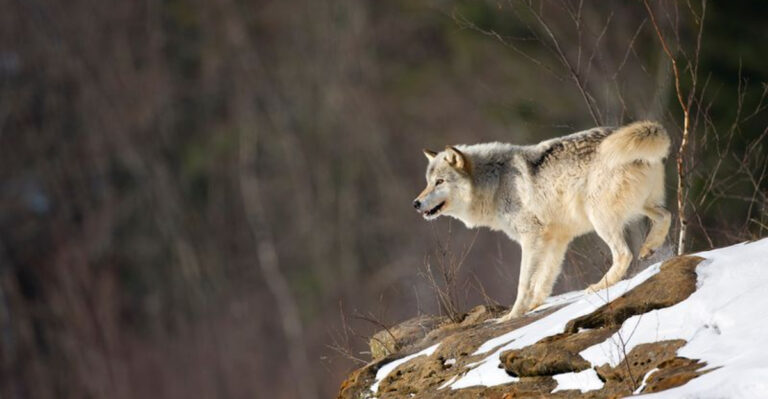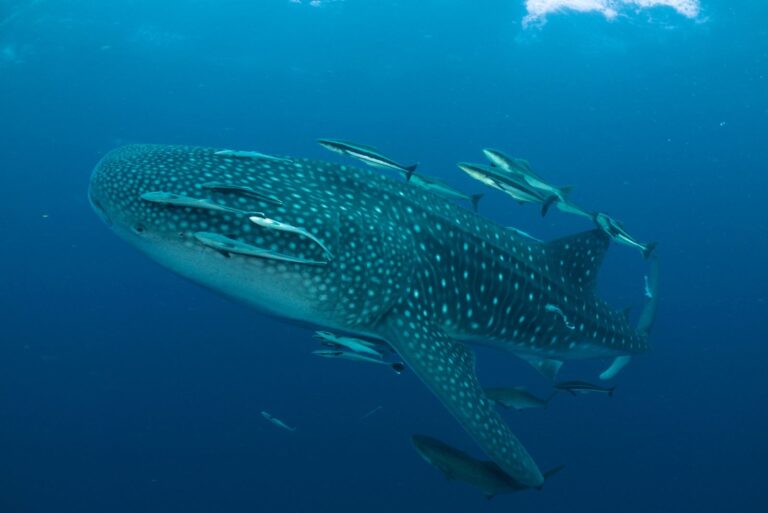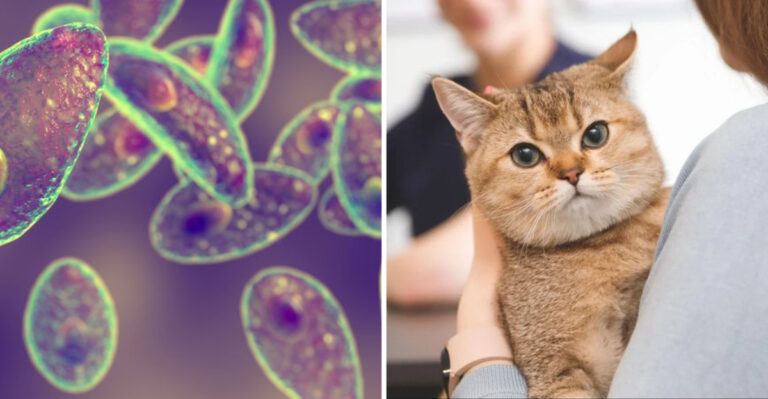14 Amazing Ferret Facts That Will Surprise You
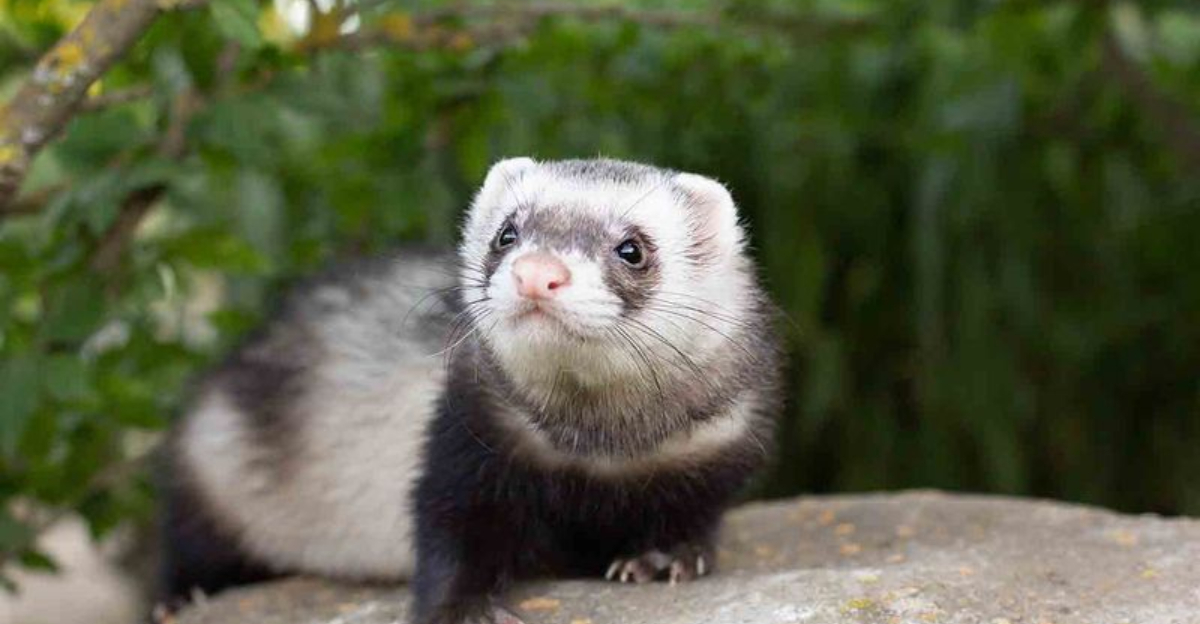
Ferrets are fascinating creatures that have captured the hearts of many with their playful antics and unique behaviors.
This list explores intriguing facts about these curious animals, showcasing their history, habits, and more.
1. Extremely Playful
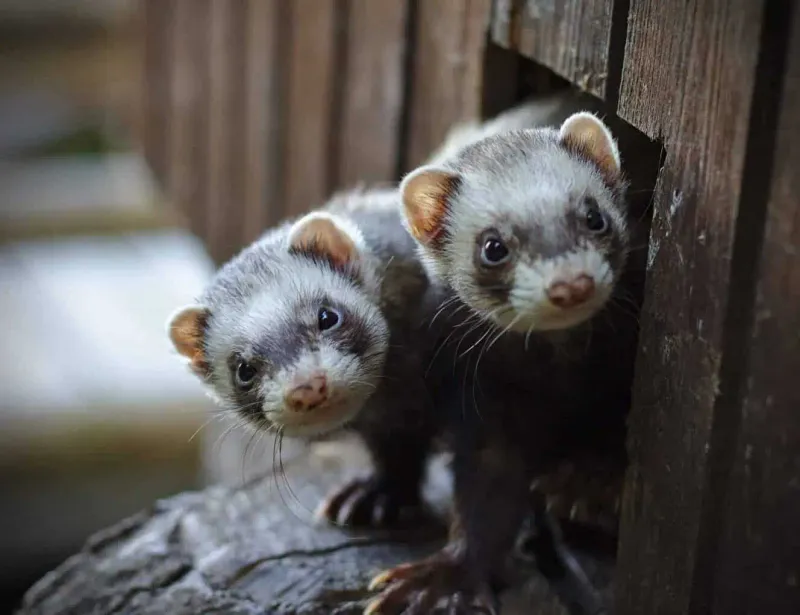
Ferrets are known for their playful behavior, often engaging in games like hide-and-seek, chasing toys, or simply pouncing on each other.
Their playful antics make them entertaining companions. With boundless energy, they turn any room into a playground. Their curiosity knows no bounds, often leading them into amusing situations.
Owners find joy in watching their ferrets explore and play, creating a lively home environment filled with laughter and joy. These furry acrobats are sure to keep you entertained.
2. Ancient Pets
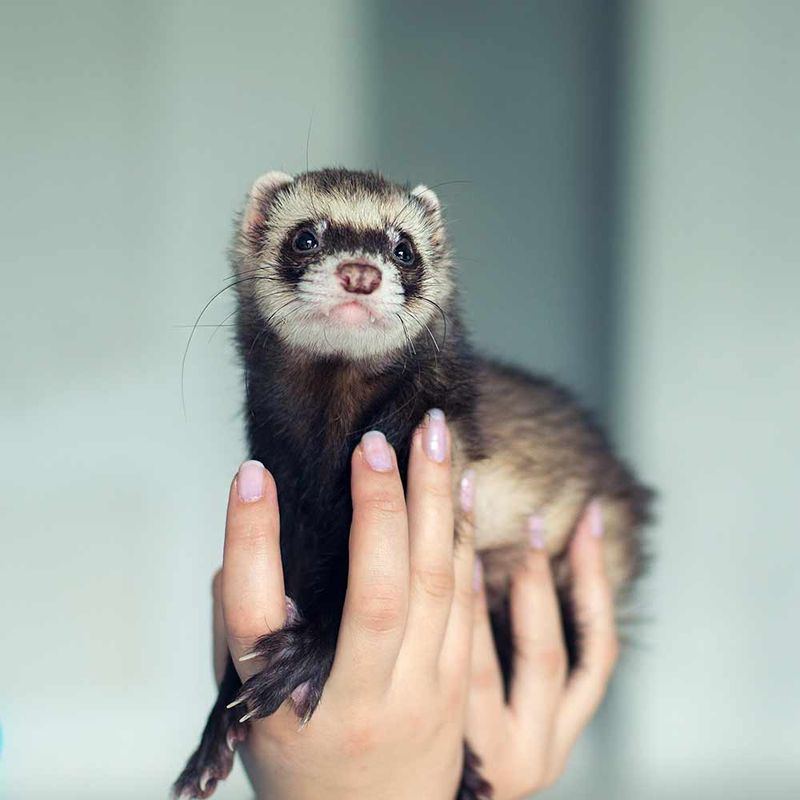
Ferrets have been human companions for over 2,500 years, originally used for hunting and pest control by the Greeks and Romans.
Over time, they became beloved pets, valued for their playful nature. Their historical significance is evident in various ancient texts and artworks.
Their adaptability and charm have ensured their place in homes across centuries.
From hunting partners to household companions, ferrets have made a lasting mark on human history. Their ancient lineage is a testament to their enduring appeal.
3. Can Live Up To 10 Years
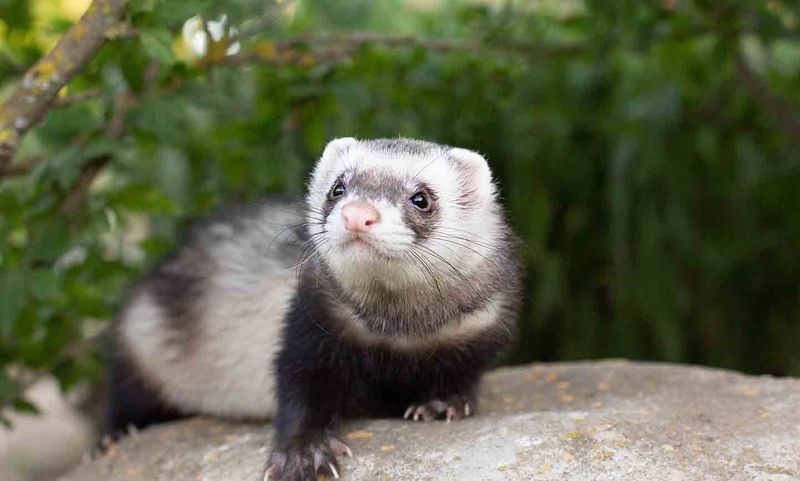
Ferrets can live up to 8 to 10 years with proper care. A healthy diet, regular veterinary visits, and plenty of social interaction can help them live a long and happy life.
Owners must be committed to their care, ensuring a fulfilling life for these adorable creatures. The joy of watching a ferret grow and thrive is unmatched.
Their lively spirits and affectionate nature enrich their owners’ lives daily. Providing the right environment ensures they remain vibrant companions for years.
4. Social Animals
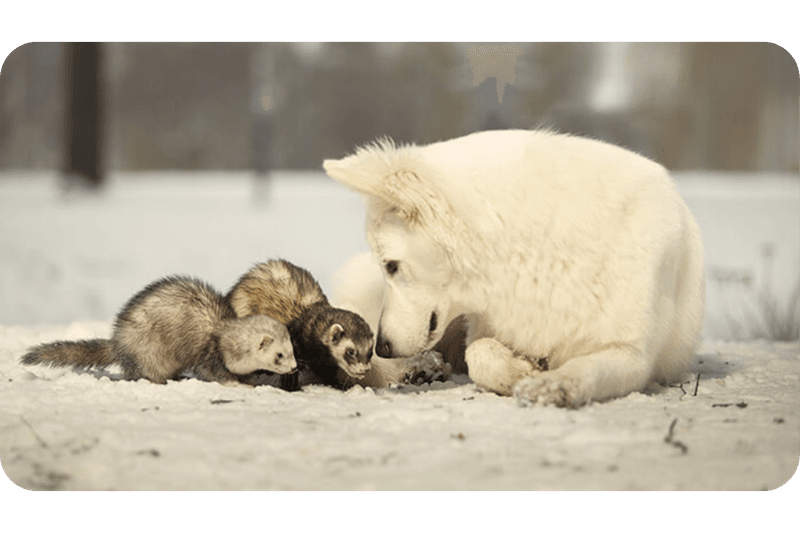
Ferrets thrive on interaction with both humans and other ferrets. They need socialization and should not be left alone for extended periods to prevent loneliness and destructive behavior.
Their social nature makes them wonderful companions, always seeking engagement. A lonely ferret may resort to mischief, so companionship is vital.
Owners who embrace their social needs find joy in their lively interactions. By fostering a social environment, ferrets become even more loving and engaging pets, bringing joy to their owners’ lives.
5. Unique Dance
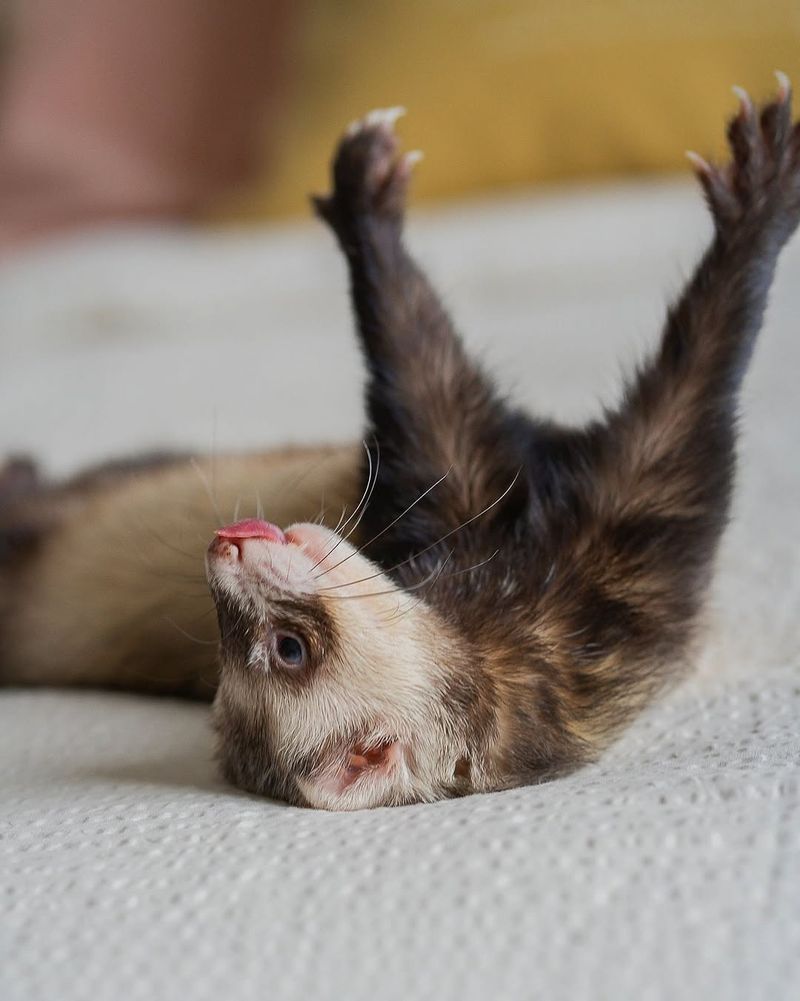
The “weasel war dance” is a playful behavior where ferrets jump sideways, arch their backs, and bounce around with joy. It’s an invitation to play, often accompanied by “dooking” sounds.
This dance is a delightful spectacle, showcasing their exuberance and joy. Owners find it irresistible, often joining in the fun.
The dance is not just play; it’s a language of happiness and excitement. Seeing a ferret dance is a heartwarming experience, reminding owners of the pure joy in simple moments.
6. Dooking Communication
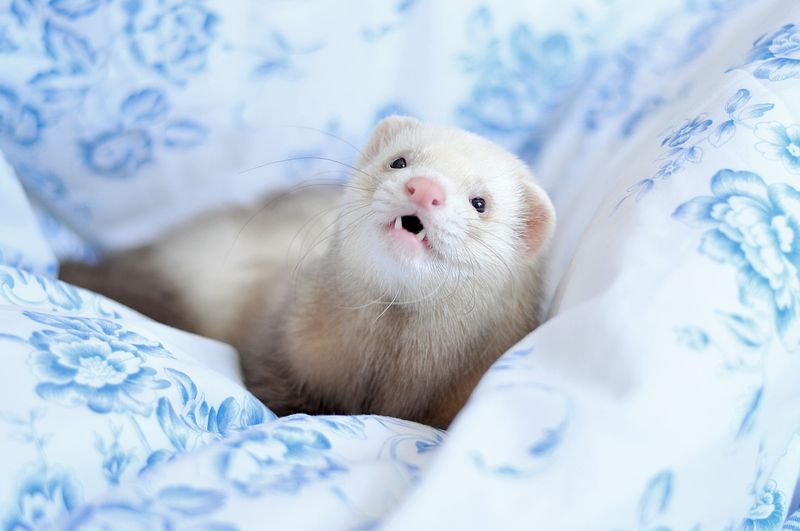
Ferrets make a unique “dooking” sound when they’re happy and excited, particularly during play. This vocalization signals contentment and is a fun part of ferret ownership.
The cheerful dooking is infectious, spreading joy to all who hear it. It’s a delightful reminder of their animated personalities. Owners cherish this sound as it signifies happiness and well-being.
By encouraging play and interaction, ferrets share their happiness with their human companions, fostering a bond filled with shared laughter and joy.
7. Can Be Litter Trained
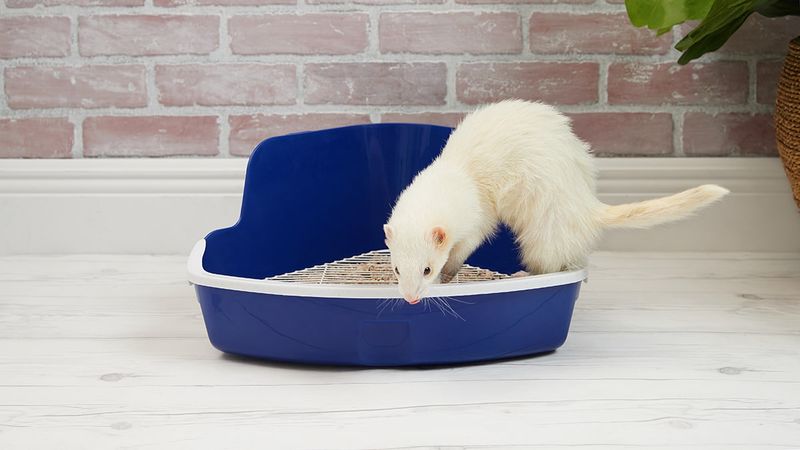
Ferrets can be litter trained like cats. Consistent training with positive reinforcement can help keep their living space cleaner and more manageable for owners.
This aspect of ferret care requires patience and persistence. Success brings a sense of accomplishment and a cleaner home environment.
Owners appreciate the independence it provides, creating a harmonious living situation.
Litter training strengthens the bond between ferret and owner, as both work together towards a common goal. It’s a rewarding experience that enhances pet ownership.
8. Escape Artists
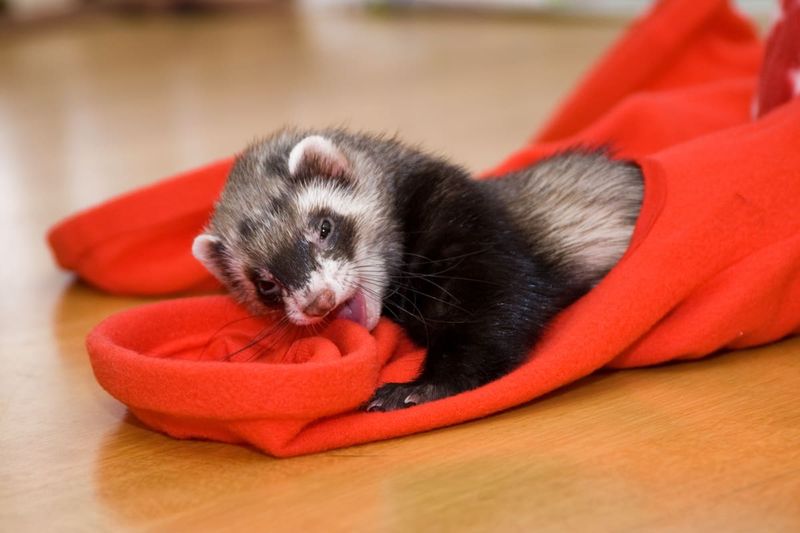
Ferrets are notorious for escaping from enclosures due to their curiosity and flexibility. Owners must ferret-proof their homes and provide mental stimulation to prevent escape attempts.
Their cleverness and agility make them creative escape artists. Proper supervision and engaging activities are key to keeping them safe.
Their adventurous spirit is endearing but requires vigilance. By understanding their needs, owners can prevent escapes and enjoy their ferret’s lively nature without worry.
9. Scent Glands
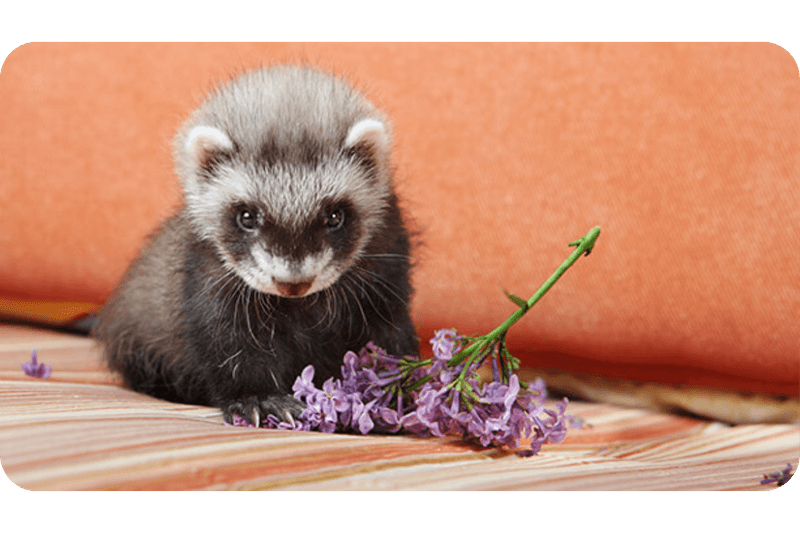
Ferrets possess musky scent glands near their tails for communication and marking territory. While they don’t spray like skunks, the scent can be stronger during mating season.
This natural trait is a part of their charm, though it may require some getting used to. Understanding and managing their scent is a part of responsible ferret ownership.
By keeping their living area clean, owners can minimize any unwanted odors. Their scent is a reminder of their wild ancestry, adding to their unique appeal.
10. Vaccinations

Ferrets require regular vaccinations to protect them from diseases like canine distemper and rabies. Regular veterinary visits help ensure their vaccinations are up to date.
Health is a priority for these energetic creatures. Vaccinations are crucial in preventing serious illnesses, ensuring a long and healthy life.
Owners must stay informed and proactive, safeguarding their pet’s well-being. The peace of mind that comes from knowing a ferret is protected is invaluable.
11. High Metabolism
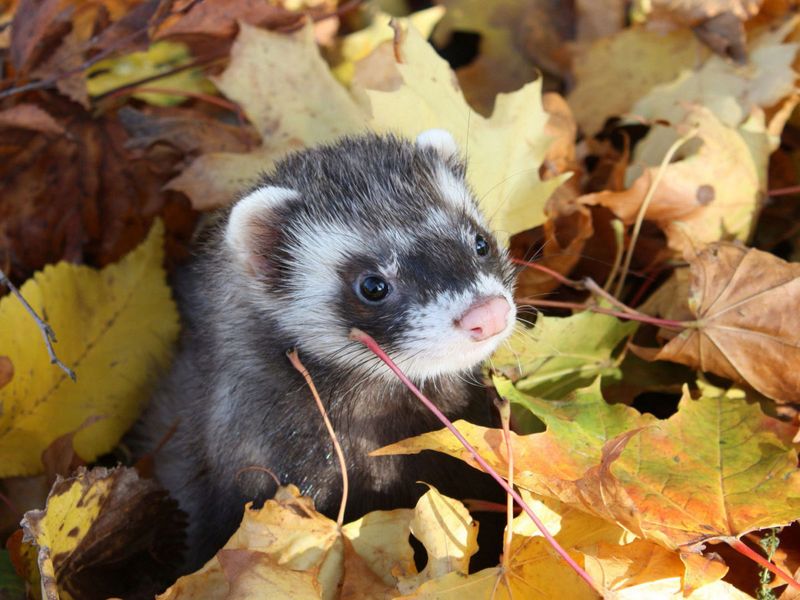
Ferrets have a fast metabolism and need frequent feeding every 3 to 4 hours to maintain their energy levels, supporting their active and playful lifestyle.
Their diet is a vital part of their care, requiring attention and planning. Providing nutritious meals ensures they stay lively and healthy.
Owners must balance their active nature with proper nutrition. This feeding routine becomes a part of daily life, fostering a routine that benefits both ferret and owner. It’s an investment in their happiness and vitality.
12. Obligate Carnivores
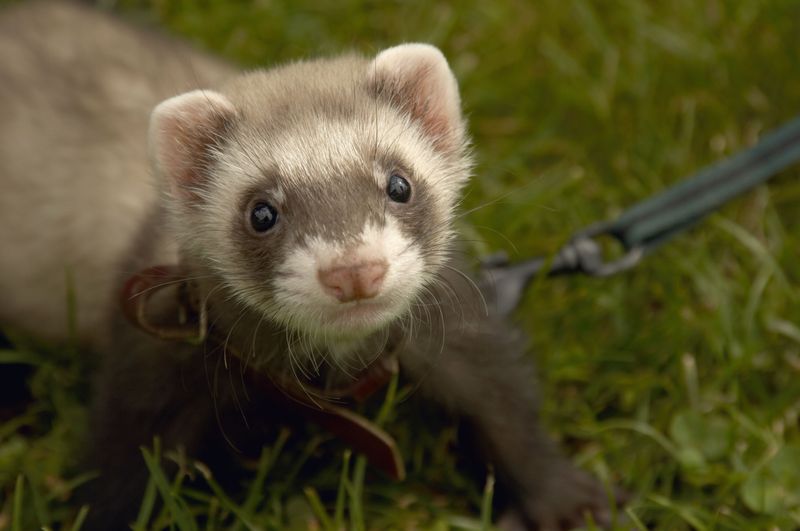
Ferrets need a high-protein, high-fat diet, similar to cats. Their digestive systems cannot process carbohydrates effectively, so a meat-based diet is essential for their health.
Caring for a ferret includes understanding these dietary needs. By offering the right food, owners support their ferret’s well-being and longevity.
This knowledge empowers owners to make informed choices, enhancing their pet’s quality of life.
A proper diet reflects the ferret’s natural instincts and biology, ensuring they thrive as playful and energetic companions.
13. Different Colors
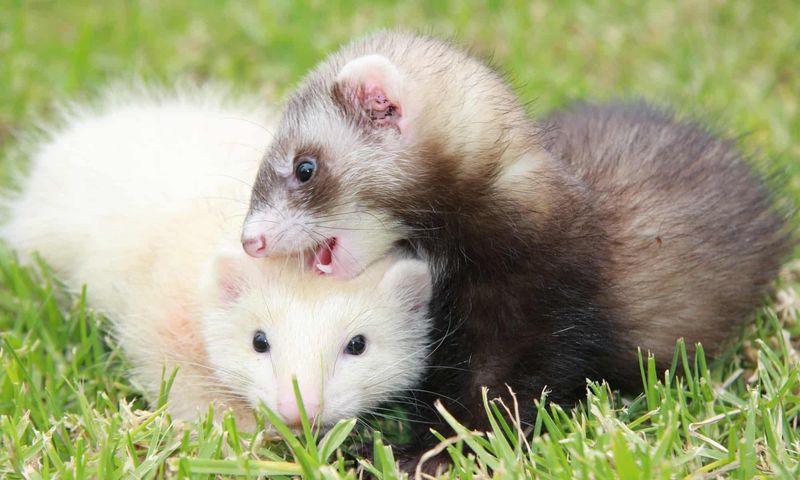
Ferrets come in a range of colors and patterns, including sable, albino, and cinnamon. These color variations reflect their genetic heritage and offer aesthetic diversity for pet owners.
Each ferret’s unique appearance adds to its charm. Owners often find joy in the individuality their ferret’s color brings.
This diversity showcases the beauty and variety within the species. It’s an opportunity to celebrate uniqueness and find a ferret that resonates with personal preferences.
14. Sleepy
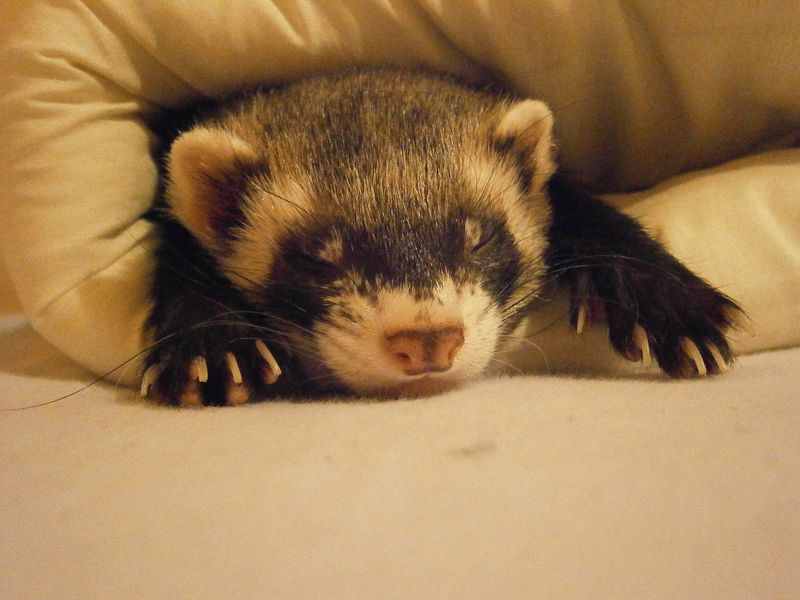
Ferrets sleep 16 to 18 hours a day, napping throughout the day in a polyphasic sleep pattern. Their crepuscular nature means they are most active at dawn and dusk.
This sleep pattern is part of their charm, providing plenty of rest for their active hours. Owners enjoy the balance of play and rest, appreciating the calm moments.
Understanding their sleep needs ensures they remain happy and healthy. Their cozy napping habits contribute to their overall well-being, making them delightful pets to care for.


